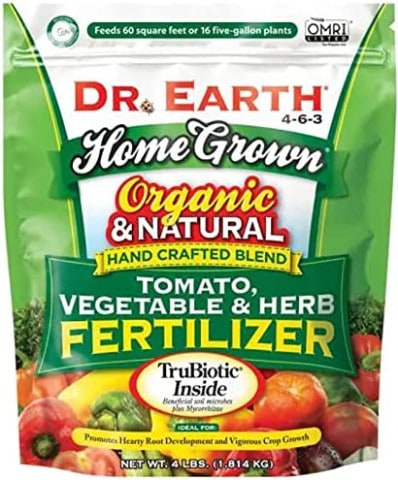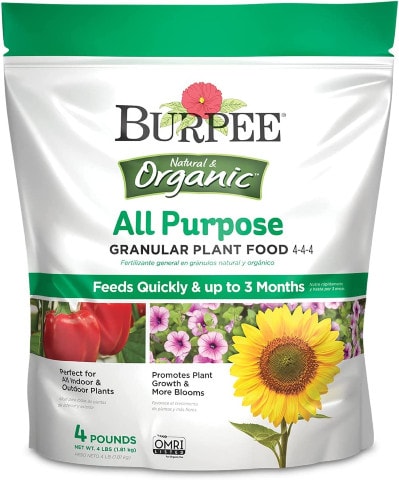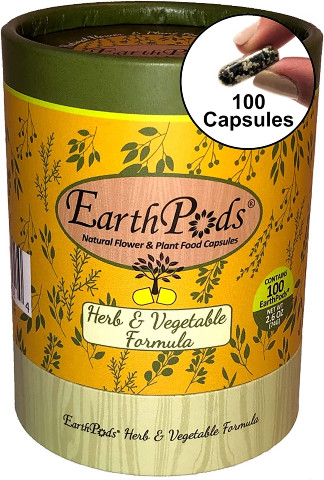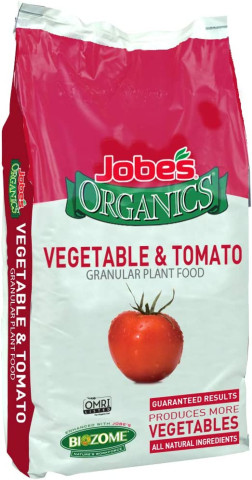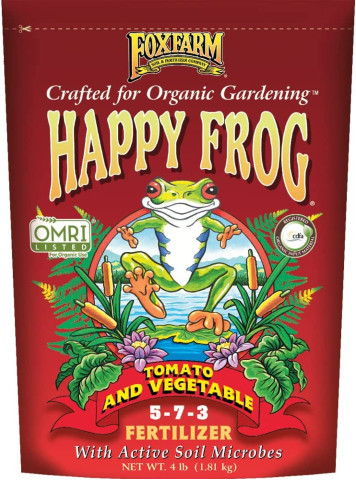12 Best Organic Fertilizers for Vegetable Gardens in 2025 – Reviews & Top Picks
-
Jeff Weishaupt
- Last updated:
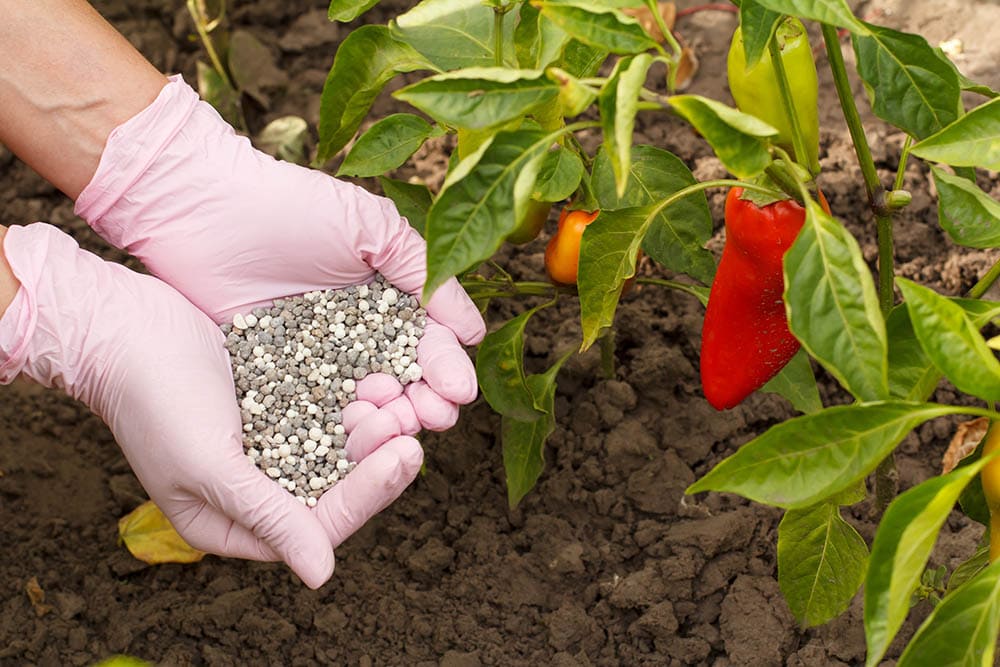
If you take good care of your plants, you know that their diet includes non-synthetic compost and plenty of nutrients. That is why organic fertilizers are the perfect pick when feeding your plants, as they use oil microbes to release macronutrients.
These macronutrients include nitrogen (N), phosphorus (P), and potassium (K), each of which is highly beneficial for your plants. These nutrients are represented in three numbers, known as the NPK ratio.
Since there is a wide range of organic fertilizers with varying ratios available, it is hard to know which one is best for your vegetable garden. However, factors such as growth stage, vegetable type, and fertilizer form can help make your decision easier.
Keep reading to find complete reviews for the 12 best organic fertilizers for your vegetable garden this year, complete with a buyer’s guide to help you make a wise purchase.
A Quick Comparison of Our Favorites in 2025
| Rating | Image | Product | Details | |
|---|---|---|---|---|
Best Overall

|

|
Earth Organic Tomato, Vegetable, and Herb Fertilizer |
|
CHECK PRICE |
Best Value

|

|
Burpee Natural Purpose Granular Organic Plant Food |
|
CHECK PRICE |
Premium Choice

|

|
EarthPods Premium Garden Herbs and Vegetable Plant Food |
|
CHECK PRICE |
|
|

|
Jobe's Plant Food Vegetables and Tomato |
|
CHECK PRICE |
|
|

|
Espoma Garden-tone Natural & Organic Herb and Vegetable Plant Food |
|
CHECK PRICE |
The 14 Best Organic Fertilizers for Vegetable Gardens
1. Earth Organic Tomato, Vegetable, and Herb Fertilizer – Best Overall
| Weight: | 4 pounds |
| Form: | Granules |
Dr. Earth is one of the most famous distributors of safe, sustainable, and organic products. Alongside other organic plant foods, they offer the best overall organic fertilizer for your vegetable garden.
The Dr. Earth Organic Tomato, Vegetable & Herb Fertilizer guarantees nutritious and tasty vegetables by supplying optimum primary plant nutrients. With an NPK of 4-6-3, this granular fertilizer has a gentle formula that will never burn your vegetables or herbs.
Still, you can count on it to supplement plenty of nutrition to the soil, being especially helpful for winter and summer veggies. The initial seed plantation is the perfect time to use this fertilizer, but it also works well during the growing season.
- Free from synthetic materials or chicken manure
- Enriched with soil microbes
- Premium Organic Transparency- OMRI, NOP, CCOF, OIM
- Created using animal and plant matter
- Suitable for potted and in-ground veggies
- Few customers reported a bug infestation
- Has a strong odor
2. Burpee Natural Purpose Granular Organic Plant Food – Best Value
| Weight: | 4 pounds |
| Form: | Granules |
If you’re new to gardening and looking for the best organic fertilizer for the money, look no further than the Burpee Natural Purpose Granular Organic Food. Besides its affordable price, the all-purpose nature of this organic fertilizer also makes it the perfect economical choice.
While it’s ideally used for vegetables, you can use it for any plant in your garden. It also has a balanced nutrient ratio of 4-4-4, which makes it an even better pick worth trying. In addition, since this fertilizer feeds quickly, you can easily feed many plants in no time.
One application of this organic fertilizer can last up to 3 months in your soil. Plus, this fertilizer adds soil microbes to your soil, allowing it to improve over time. You’ll quickly note vibrant blooms with vigorous plant growth with the help of this Burpee plant food.
- Suitable for organic gardening
- Non-GMO
- Works as a seed starter fertilizer
- The packaging may get damaged during transit
3. EarthPods Premium Garden Herbs and Vegetable Plant Food – Premium Choice
| Weight: | 0.2 pounds |
| Form: | Capsules |
If you’re willing to splurge on organic fertilizer for your vegetable garden, the EarthPods Premium Garden Herbs & Vegetable Plant Food will never disappoint you. Not only is it the perfect high-quality option, but it’s also entirely mess-free.
It’s especially beneficial for vegetables and herbs when developing a robust root system. If you remember to apply this organic fertilizer to your veggie garden regularly, you can benefit from healthy vegetables and lush foliage.
This fertilizer comes in capsule form, so remember to bury the pod near the plant’s base. This will allow the fertilizer to supply the nutrients directly to the root system at a pace slow enough not to burn the plant.
The best part about these capsules is that they’re eco-friendly and easy to store. However, it might not be suitable for a larger veggie garden.
- No measurements or mixing
- Filled with trace minerals and humates
- Fast application compared to liquid or powdered fertilizers
- No urea
- Not for a large vegetable garden
4. Jobe’s Plant Food Vegetables and Tomato
| Weight: | 15 pounds |
| Form: | Granules |
While some gardens prefer liquid fertilizers, others like the predictability of granules. If you prefer granular fertilizers, you surely need a pack of Jobe’s Plant Food Vegetables & Tomato for your vegetable garden.
This organic fertilizer is designed to fit the nutritional needs of various vegetables, especially tomatoes. It has an NPK of 2-5-3, making it suitable for young and established plants. This is the best fertilizer to use if you’re still in the soil-prepping stage for your veggie garden.
It has the perfect levels of bone meal, processed manure, and Biozome, which helps the ingredients break down faster in the soil.
- Does not burn seeds or new plantings
- Increases disease resistance and improves soil
- Safe for kids and pets
- It can cause a fuzzy mold on some plants
5. Espoma Garden-tone Natural & Organic Herb and Vegetable Plant Food
| Weight: | 4 pounds |
| Form: | Granules |
Espoma is known for its diverse range of gardening products, each of which caters to a specific plant type. Their berry-tone, tree-tone, and holly-tone products are especially famous. In addition, the Espoma Garden-tone Natural & Organic Herb & Vegetable Plant Food caters to herb and veggie gardens.
The fertilizer aims to increase your harvest with its 100% natural properties, 3-4-4 NPK ratio, and support for organic gardening practices. Herbs can feel challenging to grow at home, but this fertilizer improves all basil, rosemary, oregano, and sage plantings for long-lasting results.
You must only apply this fertilizer directly to the soil, leaving no residue on the foliage or stem.
- Applicable to warm and cool-season crops
- Free of fillers or sludges
- Improves the flavor of edible crops
- You can apply it before planting or during growth
- Some customers received a damaged package.
- Can burn plant foliage
6. Down to Earth Organic Vegetable Fertilizer
| Weight: | 5 pounds |
| Form: | Granular |
There’s no better organic fertilizer than one with balanced amounts of potassium, phosphorus, and nitrogen. Luckily, the Down to Earth Organic Vegetable Garden Fertilizer has all that and more, making it the best-balanced vegetable fertilizer.
Its best quality is that you can use it as plant food any time of year, but it’s especially ideal for summer and spring veggies.
Besides its three macronutrients, this organic fertilizer also contains other trace minerals and unique ingredients like fish bone meal, feather meal, alfalfa meal, kelp meal, and dolomite. It’s also ideal for new gardeners, as the application rate and method are written on the package.
- Packaging can be composted after use
- Easy to apply
- Also has 0.4% iron, 6% calcium, and 1% magnesium
- Proven to multiply the yield
- OMRI certified
- Not for a large garden
- The smell might attract flies
7. Tomato-tone Organic Fertilizer
| Weight: | 8 pounds |
| Form: | Granular |
Those that love homegrown vegetables can benefit from a few tomato plants in their veggie garden. Growing tomatoes can be tricky due to their specific nutrition requirements to achieve juicy fruit, but the Tomato-tone Organic Fertilizer makes it more accessible.
It’s ideal for all tomato varieties, providing balanced nutrition throughout the growth cycle. In addition, you don’t need to worry about burning the roots, as this fertilizer’s bio-tone guarantees slow feeding. A single feeding can even last several months in the soil.
The blossom end rot is one of the most common issues while growing tomatoes, but this fertilizer prevents rot by supplying 8% extra calcium. Its 3-4-6 NPK ratio works with magnesium and sulfur to ensure the best results.
- It does not have sludge or toxic materials
- Long-lasting nutrition
- You can also use it for other vegetables
- Increases bloom for more fruit
- Awful scent
8. Neptune’s Harvest Organic Hydrolized Fish and Seaweed Fertilizer
| Weight: | 2.2 pounds |
| Form: | Liquid |
Seaweed is an ideal source of nutrition for your plants, so consider Neptune’s Harvest Organic Hydrolized Fish & Seaweed Fertilizer for your vegetable garden. The soil rapidly absorbs this liquid fertilizer, supplying nutrients to the roots faster.
Since it’s a natural nitrogen source, it’s highly recommended for vegetable plants and is easy to apply with a sprayer or watering can. The fertilizer guarantees increased yield regardless of whether you grow vegetables in raised garden beds or containers.
With its 2-3-1 NPK ratio, this fertilizer can also increase your homegrown vegetables’ shelf life, making them last longer in the kitchen. One bottle of this liquid fertilizer yields 64 gallons of fertilizer solution, and you only need to reapply it every two weeks.
- Applied directly as a foliar feed
- Fragrant and long-lasting flowers on blooming varieties
- Intended for both indoor and outdoor use
- OMRI certified for organic use
- Has a strong smell
9. Fox Farm Grow Big Liquid Fertilizer
| Weight: | 1.3 pounds |
| Form: | Liquid |
The Fox Farm Grow Big Liquid Concentrate Fertilizer is perfect for growing big, flavorful veggies. The 6-4-4 NPK ratio is undoubtedly more potent than most liquid fertilizers.
It also contains Norwegian-kept earthworm castings and other essential micronutrients to make a complete fertilization solution for your entire vegetable garden. This fertilizer is the perfect mix for enhancing your plant’s fruit, flower, and bud, but you must remember to apply it before the plant’s budding.
Its low pH levels are also worth considering, as they facilitate a longer shelf life for your vegetables and prevent the disturbance of the soil’s natural pH. You can expect the best results if you reapply this fertilizer every two weeks.
- Improves vegetative growth
- Suitable for hydroponic gardening
- Foliar feeding will give your plants a healthier start
- Chunks of sediments inside the bottle
10. Neptune’s Harvest Tomato and Veg Fertilizer
| Weight: | 2 pounds |
| Form: | Liquid |
Neptune is known for its exceptional fish and seaweed fertilizer, but its tomato and veggie formula is designed especially for your vegetable garden. Neptune’s Harvest Tomato & Veg Fertilizer is ideal for gardening in the summer as it helps plants tolerate the heat.
Molasses, humic acids, fish, seaweed, and yucca extract are a few healthy ingredients filling this fertilizer, guaranteeing more stalks and leaves and an increased vegetable yield.
Since its formula caters to root and shoot development, you can use this fertilizer as a foliar spray or pour it directly onto the soil. But remember to apply it during the vegetative state, so your plants receive its 2-4-2 NPK ratio.
- Enhances plant tolerance against diseases, bacteria
- You can also use it for flowering plants
- Plants more likely to withstand drought and temperature changes
- Not OMRI listed
- It has a strong, unpleasant odor
11. FoxFarm Happy Frog Tomato & Vegetable Fertilizer
| Weight: | 4 pounds |
| Form: | Granules |
The FoxFarm Happy Frog Tomato and Vegetable Fertilizer is the perfect solution if you’re sick of seeing your plants ridden with disease. Aside from supplying nutrition and organic matter, this fertilizer also fights diseases with its own bacteria.
Also known as Mycorrhizal fungi, this particular bacteria can increase your plant’s root efficiency and the root zone’s water distribution. The fertilizer also contains a 5-7-3 NPK ratio and active soil microbes, allowing you to apply it to any plant.
Finally, this FoxFarm fertilizer contains a healthy amount of humic acid, which is crucial for the seed germination of newly planted vegetables.
- Great macronutrients for the vegetative and flowering stage
- Balanced pH
- OMRI listed for organic use
- The fungi will improve the soil’s water retention and uptake
- Not for indoor plants
- Foul smell
12. Osmocote Smart-Release Plant Food Flower & Vegetable
| Weight: | 8 pounds |
| Form: | Granules |
As the Osmocote Smart-Release Plant Food Flower & Vegetable comes in granules, it’s easy to apply just by sprinkling it around the soil. However, to get the best results, apply this fertilizer after the plant already has a root and shoot development.
This fertilizer is especially ideal for perennial vegetables, as the granules stay active in the soil for up to four months, saving you time and money. Surprisingly, the manufacturer also includes a no-burn guarantee if you apply the fertilizer correctly.
- Does not require any mixing or dilution
- High NPK of 14-14-14
- Long-term feeding
- Improves the color of the flowers
- Empty plastic shell remains in the soil
Buyer’s Guide How to Pick the Best Organic Fertilizers for Vegetable Gardens
Growing a vegetable garden is hard work, so you must ensure your organic fertilizer keeps all your efforts intact. Considering certain factors such as the fertilizer type, your vegetable type, and their growth stage will help you find the perfect organic fertilizer for your garden.
Here’s a complete buyer’s guide to help make your decision easier.
Fertilizer Type
First, you must consider that various types of organic fertilizers are available on the market, each with its pros and cons.
Manure
When it comes to gardening, the only type of animal waste you should use is manure. Manure is the waste from herbivores decomposed into a soil-like substance.
Make sure to avoid mixing fresh manure before planting, as it contains a high level of nutrients. It can be too hot for your plants and even burn their roots.
Compost
Compost consists of decomposed organic matter, like leaves, grass clippings, and kitchen scraps. Whether homemade or store-bought, compost is a great way to supply nutrients and organic matter to your soil. If you opt for homemade compost, the process may take several months.
Bone Meal
Made from ground animal bones, bone meal is the perfect source of phosphorus for your plants. You may use it as a side dressing or mix it into the soil before planting for the best results. Soon enough, you’ll note healthier root systems and increased flowering/fruiting in your plants.
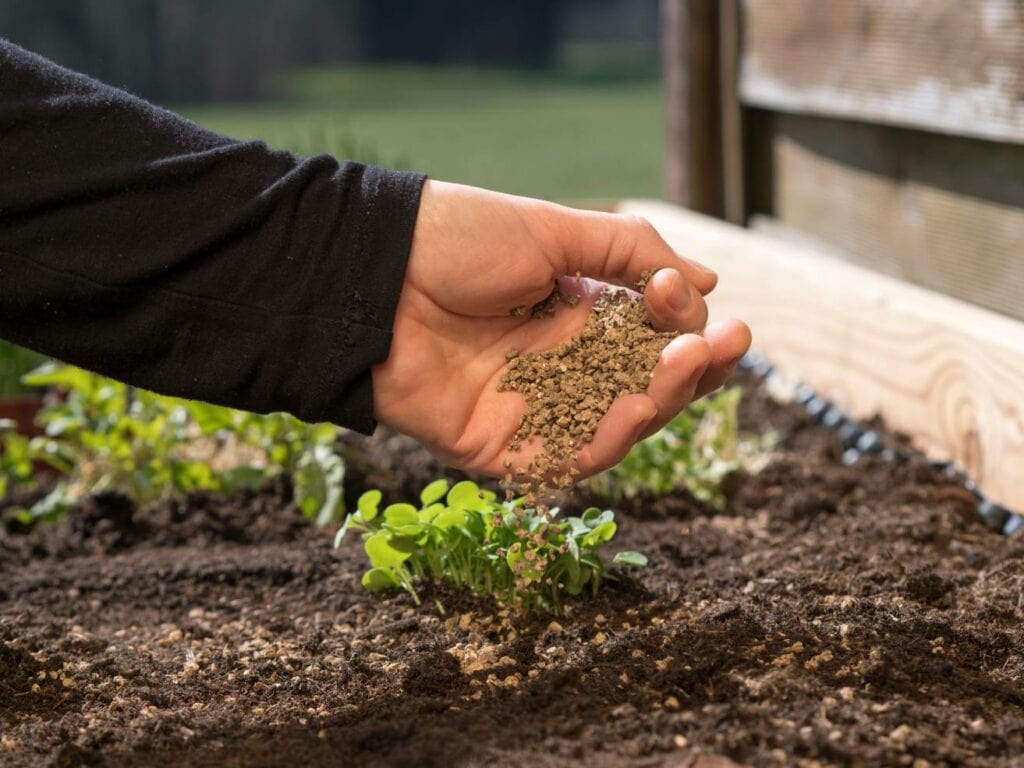
Blood Meal
A blood meal is made from ground and dried animal blood, which is why it’s an excellent nitrogen source for your vegetable garden. You may use it as a side dressing or mix it into the soil before planting for the best results.
Blood meal is the perfect type of fertilizer if your garden has leafy greens or other plants in need of nitrogen.
Fish Emulsion
Made from whole fish or composted fish parts, fish emulsion is an excellent nitrogen source for your plants. You may use it as a side dressing or mix it into the soil before planting for the best results. It’s best used on seedlings or young plants.
Seaweed Fertilizer
Seaweed fertilizer is made from dried and ground seaweed or kelp. It enriches your plants with all the necessary nutrients, such as phosphorus, potassium, and nitrogen. You may use it as a side dressing or mix it into the soil before planting for the best results.
Worm Casting
Made from worm waste, worm-casting fertilizer also provides a healthy supply of nutrients for your plants by improving the soil quality. You may use it as a side dressing or mix it into the soil before planting for the best results.
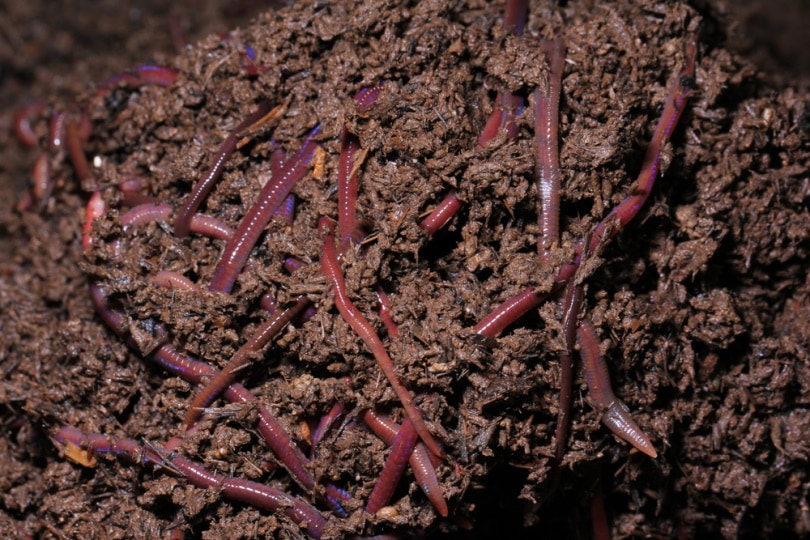
Fertilizer Form
Other than choosing your fertilizer based on soil amendment purposes, you can also consider the form of organic fertilizer.
Granular
If the packing says the fertilizer is granular, it means it’s available in the form of solid, round pellets. You can add this type of fertilizer directly to the soil, allowing it to dissolve over time. If you opt for a slow-release granular fertilizer, you will only have to fertilize your garden sometimes.
On the other hand, fast-acting granular fertilizers are more straightforward, but they take up more space and require fertilization often. It’s worth noting that granular fertilizers are only ideal for those with a few container plants, as they usually come in large quantities.
Dissolvable
Some solid fertilizers are also dissolvable in water and only require a small concentration for gallons of plant food. Dissolvable fertilizers allow you to fertilize large areas with a sprayer or watering can without wasting time and effort.
Liquid
Like dissolvable fertilizers, liquid fertilizers only require a small concentration added to regular water. As a result, they’re easy to use in hydroponics systems and ideal for covering large areas in less time.
However, liquid may not be the ideal fertilizer if you’re using sandy soil, as the water will wash through too quickly. On the other hand, they work perfectly as regular plant food since they’re easy to apply to an adult plant.
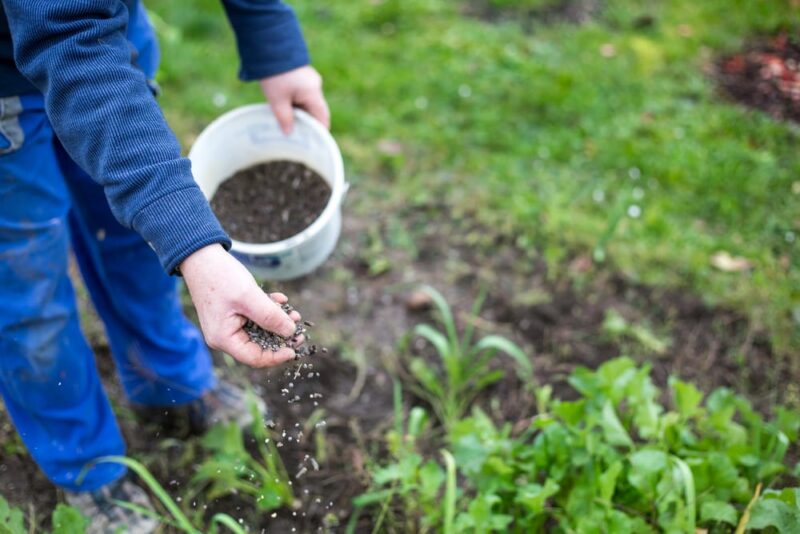
Vegetable Type
In most cases, a general plant fertilizer will work efficiently for any plant in your vegetable garden. But if you want to take your gardening skills up a notch, you may consider the varying nutrient needs of each vegetable and buy your fertilizer accordingly.
You can find various fertilizer options that cater to a specific vegetable for the best results. For example, leafy greens benefit from nitrogen, while broccoli, cauliflower, and cabbage plants need phosphorus, especially when the head forms.
Growth Stage
As we mentioned, each vegetable has a different nutrient need at different stages of its growth. Therefore, finding an organic fertilizer appropriate for your vegetable’s growth stage is simple.
For example, if your plant is actively growing and producing leaves, you may opt for a fertilizer with high nitrogen content. On the other hand, if your vegetables’ roots are beginning to form, a fertilizer high in phosphorus will work best.
Time of Year
Most organic fertilizers are safe to apply at any time of the year, but the ideal time depends on the fertilizer type and your garden’s needs. Compost fertilizers can be applied any time of the year, while blood meal options are best used in spring.
Fish emulsion or seaweed fertilizers are ideal for summer use, mainly when plants are producing flowers and fruit.
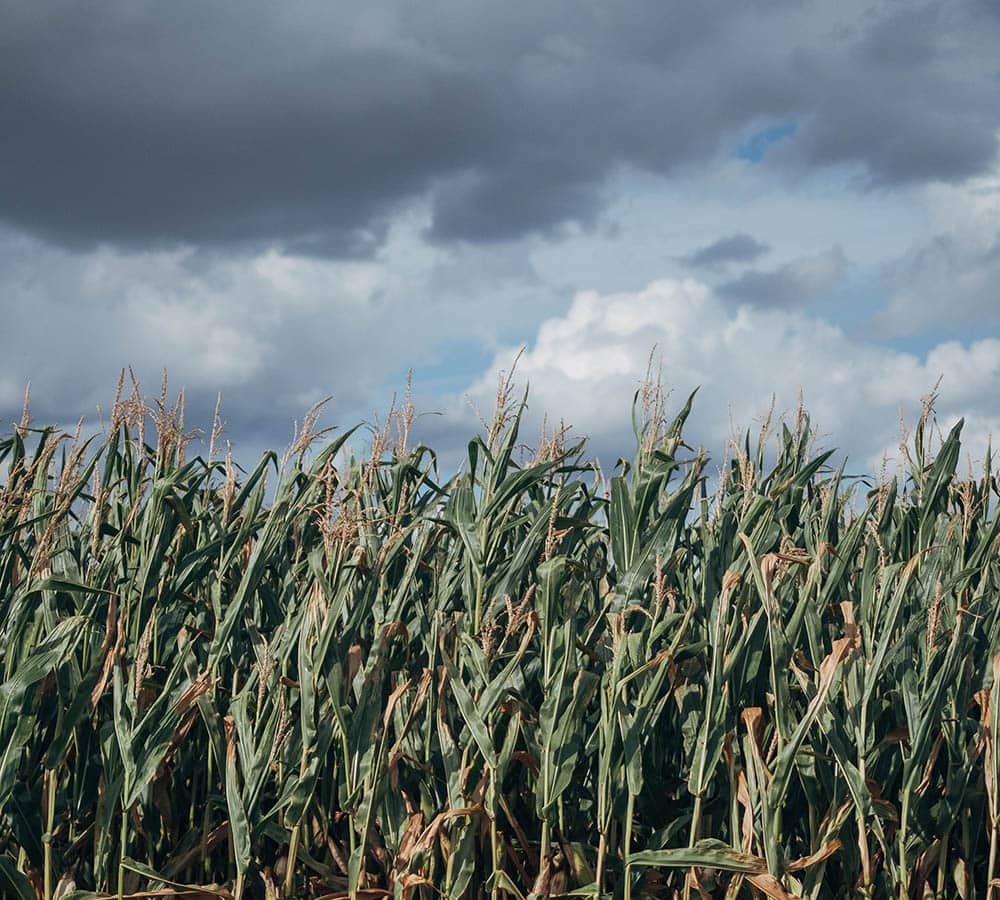
Soil Type
Of course, your soil structure also influences the organizer fertilizer you choose for your vegetable garden. That’s because different soil structures require different nutrients. For example, sandy soils are low in nutrients, while clay soils have high nutrient content.
As a result, a high-nutrient fertilizer would be ideal for sandy soils. Before investing in organic fertilizer, you can perform a soil test to determine your soil structure.
Budget
Lastly, it’s crucial to consider your budget while buying organic fertilizers since certain options can be pretty expensive. If your budget is tight, compost or worm-casting fertilizer are affordable options.
Not only are they available at reasonable costs, but you can also make them at home with little effort.
Conclusion
If you’re giving your plants enough plant and water but skipping out on fertilizer, you’re missing an important requirement. Fertilizer is food for your veggie garden, so it’s best to take some time and make the right pick.
If you’re looking for an all-rounder fertilizer free from synthetic materials and chicken manure, Dr. Earth Organic Tomato, Vegetable, and Herb Fertilizer is a perfect choice. But if affordability is your priority, the Burpee Natural Purpose Granular Organic Food is perfectly suitable for organic gardening.
Lastly, the EarthPods Premium Garden Herbs & Vegetable Plant Food is filled with trace minerals and humates, but only if you’re willing to splurge.
Featured Image Credit: Pedal to the Stock, Shutterstock
Contents

